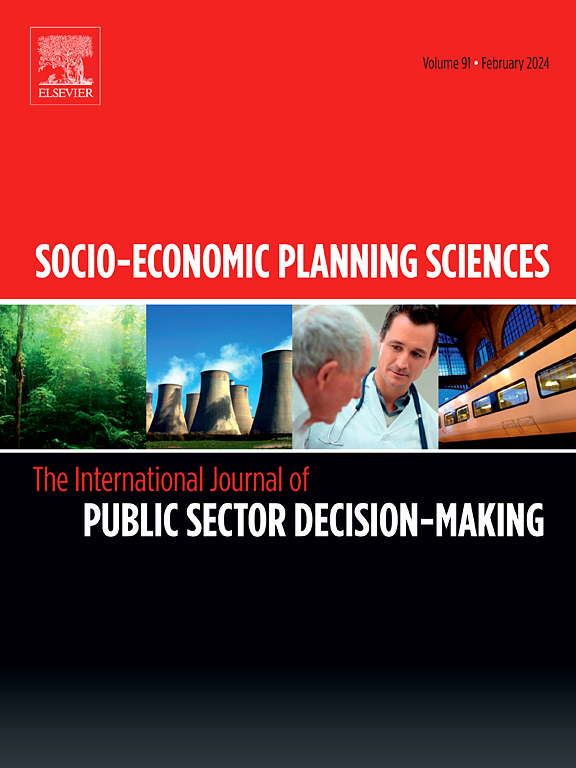Deprivation cost theory in humanitarian relief: A literature review and prospects
IF 5.4
2区 经济学
Q1 ECONOMICS
引用次数: 0
Abstract
The concept of deprivation cost, which directly quantifies human suffering, has been extensively applied in humanitarian relief operations across various disaster scenarios. The recent COVID-19 pandemic has introduced a novel context for the study of deprivation cost. The methodologies for applying deprivation cost may vary significantly across different scenarios, indicating a potential correspondence between the application methods and specific scenarios. To advance the development of deprivation cost theory and its application to biological disasters, this study systematically reviews 58 studies sourced from the Scopus and WoS databases, synthesizing diverse insights contributed by existing research on deprivation cost modeling methodologies. Drawing on various scenarios, the study examines the selections related to the characteristics of deprivation cost, functional forms, objective functions, assumptions, and calculation methods. Upon constructing the theoretical and applied framework, the study investigates the specific characteristics of deprivation cost research in biological disasters, concluding with suggestions for future research directions.
人道主义救济中的剥夺成本理论:文献回顾与展望
剥夺成本的概念直接量化了人类的痛苦,已广泛应用于各种灾害情况下的人道主义救济行动。最近的COVID-19大流行为剥夺成本研究提供了一个新的背景。在不同的情景中,应用剥夺成本的方法可能差别很大,这表明应用方法与具体情景之间存在潜在的对应关系。为了促进剥夺成本理论的发展及其在生物灾害中的应用,本研究系统地回顾了来自Scopus和WoS数据库的58项研究,综合了现有剥夺成本建模方法研究的不同见解。在不同的情景下,研究考察了与剥夺成本特征、功能形式、目标函数、假设和计算方法相关的选择。在构建理论和应用框架的基础上,探讨了生物灾害中剥夺成本研究的具体特点,并对未来的研究方向提出了建议。
本文章由计算机程序翻译,如有差异,请以英文原文为准。
求助全文
约1分钟内获得全文
求助全文
来源期刊

Socio-economic Planning Sciences
OPERATIONS RESEARCH & MANAGEMENT SCIENCE-
CiteScore
9.40
自引率
13.10%
发文量
294
审稿时长
58 days
期刊介绍:
Studies directed toward the more effective utilization of existing resources, e.g. mathematical programming models of health care delivery systems with relevance to more effective program design; systems analysis of fire outbreaks and its relevance to the location of fire stations; statistical analysis of the efficiency of a developing country economy or industry.
Studies relating to the interaction of various segments of society and technology, e.g. the effects of government health policies on the utilization and design of hospital facilities; the relationship between housing density and the demands on public transportation or other service facilities: patterns and implications of urban development and air or water pollution.
Studies devoted to the anticipations of and response to future needs for social, health and other human services, e.g. the relationship between industrial growth and the development of educational resources in affected areas; investigation of future demands for material and child health resources in a developing country; design of effective recycling in an urban setting.
 求助内容:
求助内容: 应助结果提醒方式:
应助结果提醒方式:


